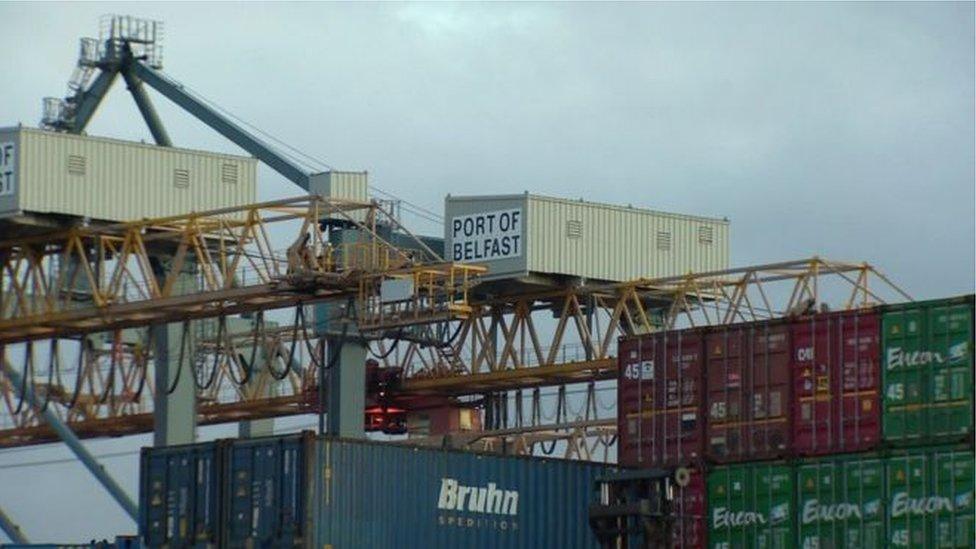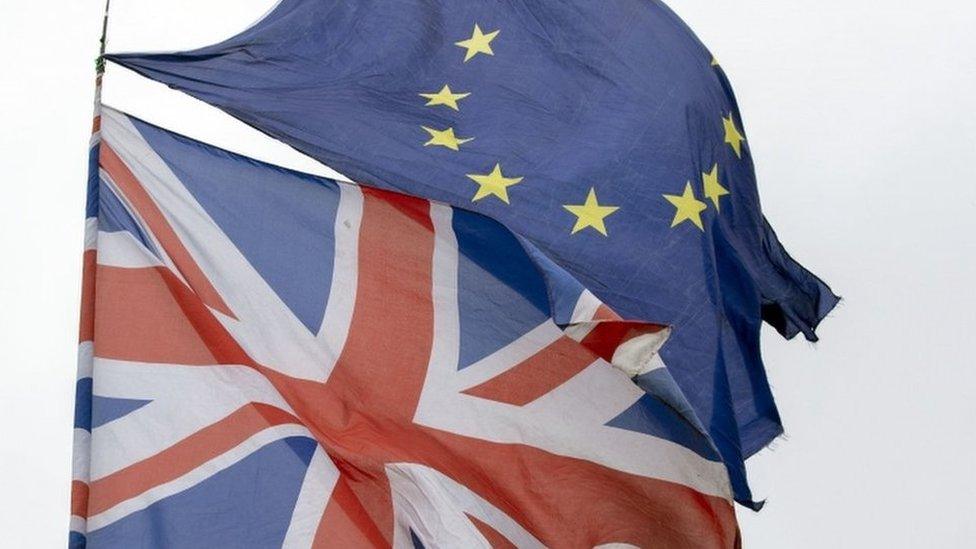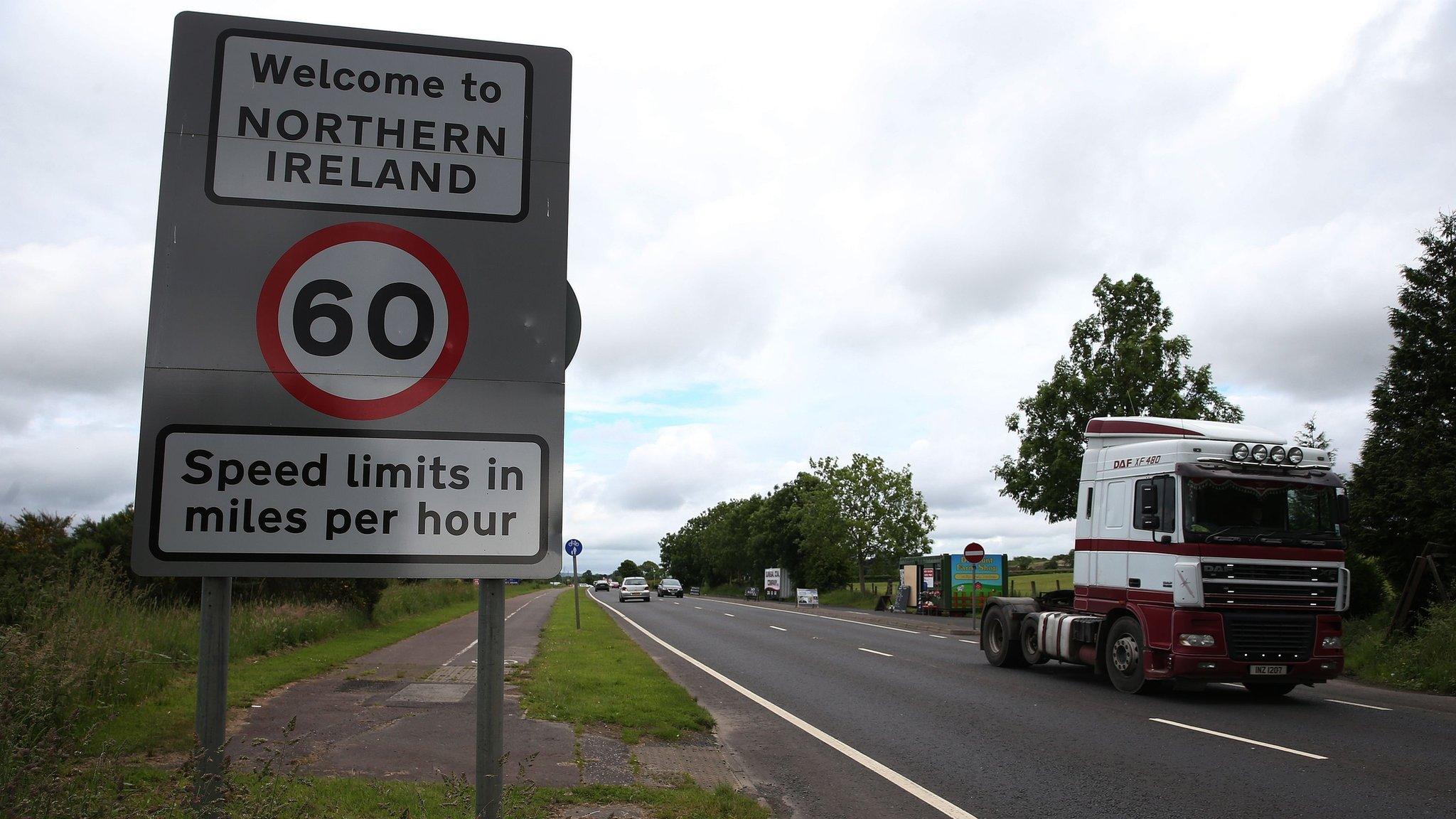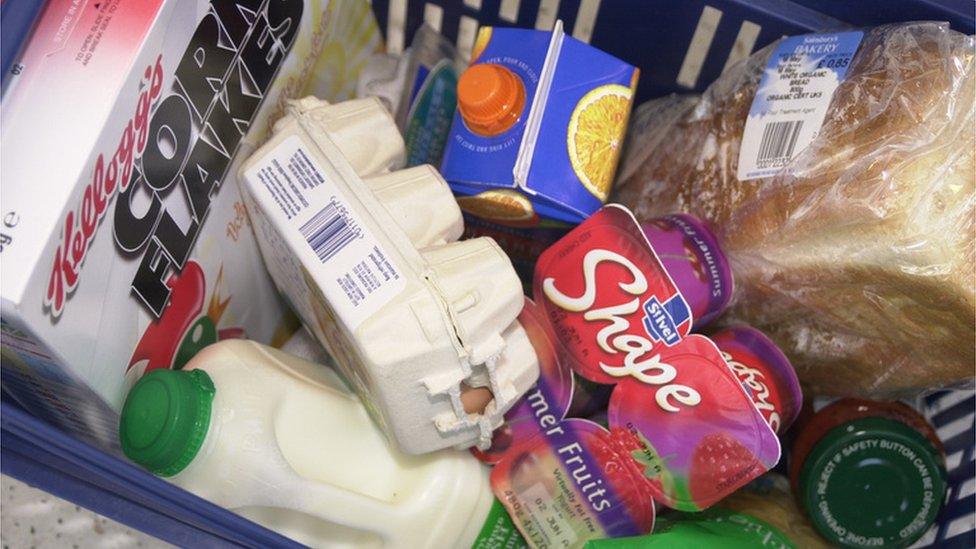Brexit: NI businesses facing 'very, very difficult' January
- Published
- comments

Goods being shipped from GB to Northern Ireland will face new checks and controls from January
NI businesses are facing a "very, very difficult" time in January when the Brexit transition period ends, a senior civil servant has warned.
Shane Murphy was giving evidence to Stormont's Economy Committee.
Goods being shipped from GB to Northern Ireland will face new checks and controls from January.
Mr Murphy said there were "pretty low levels of preparedness" by business and many firms were concentrating on dealing with the impact of Covid-19.
He told assembly members that clarity was still not available for businesses as "key things are being negotiated in one forum or another".
He said even on areas where there was agreement, systems were still being built to operationalise changes so companies do not yet have experience of using them.

From January 1 Northern Ireland will stay in the EU single market for goods while the rest of the UK leaves
His colleague Giulia Ní Dhulchaointigh said there were particular concerns about GB business knowing what new processes would be required to ship goods to NI.
She also said there were worries about micro-businesses in NI who buy from GB, with evidence that many of them have not yet taken the basic steps needed to continue that trade.
From January 1 Northern Ireland will stay in the EU single market for goods while the rest of the UK leaves.
NI will also continue to apply EU customs rules at its ports.
That will mean a new range of checks, controls and administration on goods entering from other parts of the UK.
Imports of food from GB-NI are a particular concern.
'Practical arrangements'
These products must enter the EU single market through a border control post where paperwork is checked and a proportion of goods are physically inspected.
All these products must also have an export health certificate, an expensive piece of administration.
This could add substantial costs to every trailer load of supermarket goods.
The UK government is pressing the EU to show maximum flexibility on this issue, but nothing has yet been agreed.
There are also still questions about how online shopping will impacted.
In theory most parcels will need some from of customs declarations but it is not yet clear how this will work.
Prime Minister Boris Johnson has insisted the government wants to make "practical arrangements" to help businesses in NI adjust fully after the transition period ends.
He was answering a question from Alliance MP Stephen Farry during questions in the Commons on Wednesday.
Mr Farry asked the prime minister if he supported a request to the EU for a "grace period" after 1 January.
Mr Johnson maintained that the transition period will not be extended, but said the government had already put some measures to support NI firms in place and that more details would be announced shortly on further plans.
- Published8 December 2020

- Published14 November 2020

- Published6 November 2020
